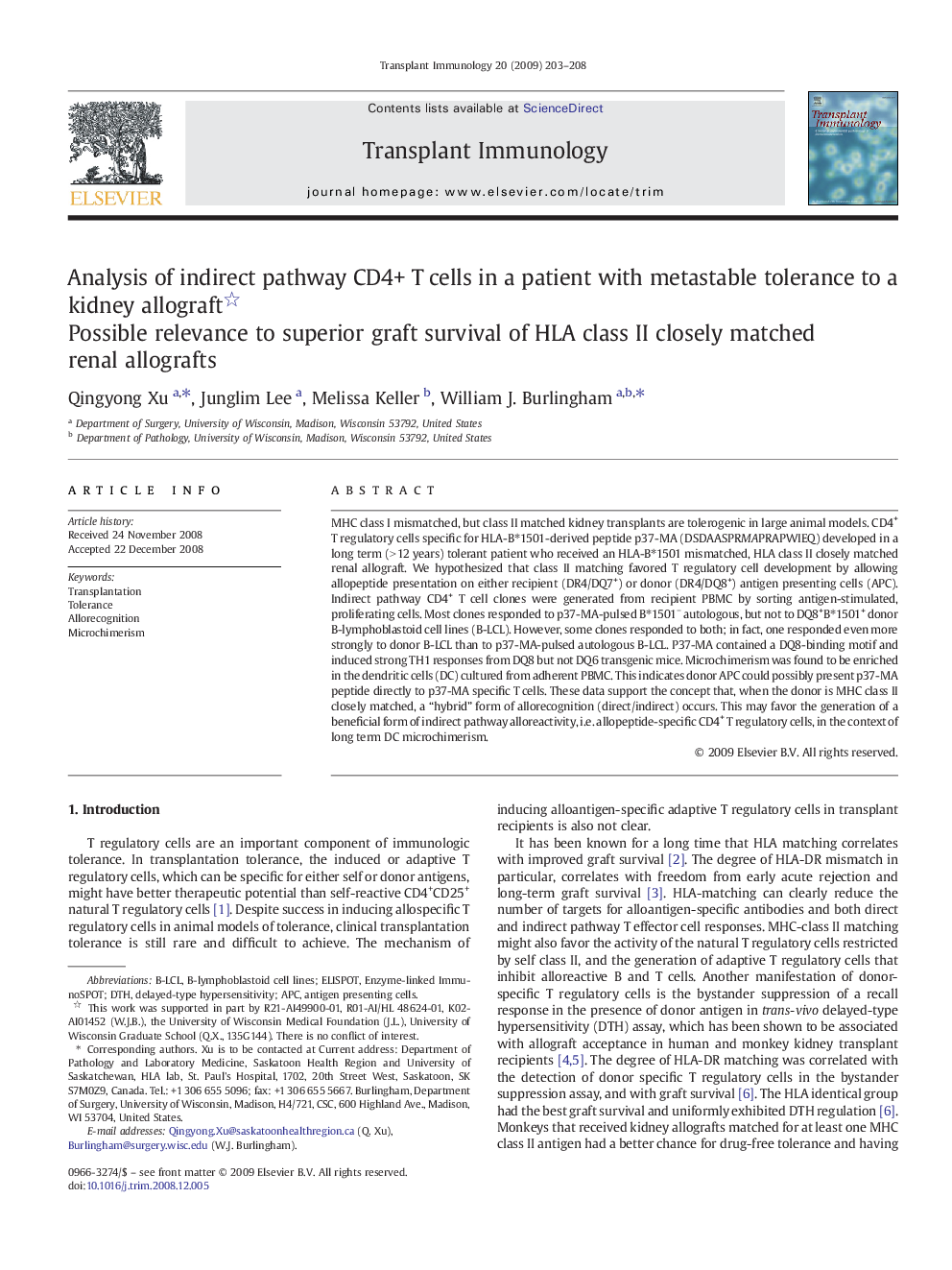| Article ID | Journal | Published Year | Pages | File Type |
|---|---|---|---|---|
| 3392497 | Transplant Immunology | 2009 | 6 Pages |
MHC class I mismatched, but class II matched kidney transplants are tolerogenic in large animal models. CD4+ T regulatory cells specific for HLA-B⁎1501-derived peptide p37-MA (DSDAASPRMAPRAPWIEQ) developed in a long term (> 12 years) tolerant patient who received an HLA-B⁎1501 mismatched, HLA class II closely matched renal allograft. We hypothesized that class II matching favored T regulatory cell development by allowing allopeptide presentation on either recipient (DR4/DQ7+) or donor (DR4/DQ8+) antigen presenting cells (APC). Indirect pathway CD4+ T cell clones were generated from recipient PBMC by sorting antigen-stimulated, proliferating cells. Most clones responded to p37-MA-pulsed B⁎1501− autologous, but not to DQ8+B⁎1501+ donor B-lymphoblastoid cell lines (B-LCL). However, some clones responded to both; in fact, one responded even more strongly to donor B-LCL than to p37-MA-pulsed autologous B-LCL. P37-MA contained a DQ8-binding motif and induced strong TH1 responses from DQ8 but not DQ6 transgenic mice. Microchimerism was found to be enriched in the dendritic cells (DC) cultured from adherent PBMC. This indicates donor APC could possibly present p37-MA peptide directly to p37-MA specific T cells. These data support the concept that, when the donor is MHC class II closely matched, a “hybrid” form of allorecognition (direct/indirect) occurs. This may favor the generation of a beneficial form of indirect pathway alloreactivity, i.e. allopeptide-specific CD4+ T regulatory cells, in the context of long term DC microchimerism.
